Data Science Insights in partnership with Thomson Reuters
Data Insights Highlights: Disrupting News
July 2016
Data Insights: Disrupting News
how big data is transforming the future of news and media
The ongoing evolution of technology and global internet connectivity has completely transformed media consumption. News organisations have needed to adapt to the changing demands of consumers. This has required rethinking not only editorial coverage but also the overhaul of newspaper business models. Tom Betts - Chief Data Officer, Financial Times - will explain what is behind the FT's digital growth, and how customer data has both informed this transition and created new growth opportunities.
Thomson Reuters
We are delighted host our flagship speaker series in partnership with Thomson Reuters - Data Science Insights. We invite speakers who are leaders in different areas relating to data science, big data, and data-driven domain areas to speak on issues faced by both academia and industry, as well as policy and socio-cultural change affected by data today.
Join us and engage with our speakers on a broad range of topics on how data is being used in areas such as commodities, agriculture, physical sciences, weather prediction, finance, healthcare, and even in understanding human behaviour.
Working together with Thomson Reuters gives us unprecedented access to a broad range of industry and government speakers allowing us to explore how data is changing the way in which we live and work. This year, we aim to help broaden horizons and provide real insights into how data is being utilised today, as well as how it will be used in the future.
Check out our current programme of Data Science Insights events below, and we look forward to seeing you there. All of our events are free and open to anybody, but require registration in advance.
20 June 2016 - Disrupting News: how big data is transforming the future of news and media
Time: 18:30 - 19:30
Venue: The Royal Society of Medicine, 1 Wimpole St, London W1G 0AE
The ongoing evolution of technology and global internet connectivity has completely transformed media consumption. News organisations have needed to adapt to the changing demands of consumers. This has required rethinking not only editorial coverage but also the overhaul of newspaper business models. Tom Betts - Chief Data Officer - will explain what is behind the FT's digital growth, and how customer data has both informed this transition and created new growth opportunities.
-(1)--tojpeg_1464191453355_x2.jpg) Tom Betts is the Financial Times’ Chief Data Officer. He is a member of the FT Board, one of the few boards to incorporate and leads the FT’s data capability and strategy. This involves working with a global team to support all parts of the organisation in their use of data to improve and optimise their work.
Tom Betts is the Financial Times’ Chief Data Officer. He is a member of the FT Board, one of the few boards to incorporate and leads the FT’s data capability and strategy. This involves working with a global team to support all parts of the organisation in their use of data to improve and optimise their work.
Tom previously held the position of VP, Analytics for Pearson Professional, former owner of the Financial Times, building analytics teams across a range of educational businesses. Prior to that he was Head of Data Analytics for FT.com, having joined the FT in 2009. He was instrumental in establishing data as a core competency for the FT and grew a team who have successfully catalysed the use of data in decision making right across the organisation.
Prior to the FT, Tom worked in a consultancy capacity delivering large scale data mining projects in a number of industry sectors.
09 March 2016 - Wearable Tech - the data from work, rest and play
Wearable Tech: the data from work, rest and play
More than a generation after the rise of the personal computer, it is undeniable that the miniaturization of devices, alongside an exponential rise in processing power means that wearable technology has made computing more personal than ever. Wearable tech is all about data. It is changing the way we consume and respond to information; we’re collecting more information about ourselves and using that to make a difference to our lives.
This panel, hosted by Reuters Editor-at-Large Axel Threlfall, brings together three aspects of wearable tech. The first wave of wearables was driven by health and fitness applications. Esther Rodriguez-Villegas, Imperial Professor and one of the creators of Acupebble, will join the panel to talk about the vast potential of in healthcare. Wearables also need to be technology you want to wear. Diogo Coutinho from Vinaya, the connected jewelry start-up knows all about building technology that fits seamlessly into everyday life. Finally, Fotini Markopoulou, co-founder of Doppel will talk about their success on Kickstarter, winning Pitch@Palaceand how their technology to change your mood could transform the workplace.
Panel
Esther Rodriguez-Villegas (Imperial College London/ Acupebble)
Esther Rodriguez-Villegas holds the chair of Low Power Electronics in the Department of Electrical and Electronic Engineering, Imperial College London, where she leads a multi-disciplinary team of thirteen PostDocs and PhD students. Her most recent research interests are focused on wearable sensors for physiological monitoring and low-power integrated circuits with a focus on healthcare applications. She is co-creator of Acupebble.
Diogo Coutinho (Vinaya)
Diogo Coutinho is a product leader with extensive experience on consumer products ( hardware and software), having worked for large and medium sized companies, as well as startups. Past companies include: the Telefonica Group, Three UK and the Just Eat Group. He's currently the Director for Product Innovation at VINAYA Technologies, a startup in the exciting area of wearables that combines human sciences with data and technology to improve general wellbeing. He also considers himself a Futurist geek, especially interested in Artificial Intelligence, Machine Learning, Neuroscience and the Internet of Things.
Jack Hooper (Doppel)
Co-Founder of Doppel, Jack is a film-maker turned mechanical engineer. A strong sense of narrative combined with a Mechanical Engineering degree from Leeds University brought him to the Innovation Design Engineering Masters (IDE) at the Royal College of Art and Imperial College, as a Royal Commission for the Exhibition of 1851 scholar, to further his combination of the arts and sciences. A true generalist, he has worked for a robotics start up in design and business, produced maintenance equipment for a weaving company, written and created a Diana Award nominated film and earned a distinction for a dissertation on ethics and nudge psychology. His design interests are focused primarily on how people interact with their world both psychologically and physically.
Chair: Axel Threlfall
Axel Threlfall is Reuters Editor-at-Large based in London. He hosts high-profile engagements and thought leadership events for and on behalf of Reuters and Thomson Reuters. He was previously Lead European Anchor for Reuters Digital Video. Prior to joining Reuters, Axel spent four years as an anchor for CNBC in London. Before that, he was an editor with The Wall Street Journal in New York and a news reporter for Bloomberg in London. He has also advised businesses and NGOs on their dealings with the international media.
25 February 2016 - Data and Surge Pricing at Uber
Time: 17:30 - 19:00
Venue: Imperial College London, Chemical Engineering Lecture Theatre 1, Ace Extension. Campus map availible here.
Contrary to conventional wisdom, Uber does not surge prices to make money; indeed, Uber would prefer to not have to surge at all. Uber surges prices because it is the only way to create the service customers around the world know and love. In this talk Professor Van Ryzin will explain the fundamental rationale behind Uber's celebrated - yet often maligned - surge pricing practice, and explore how data has the potential to change pricing strategies in other industries.
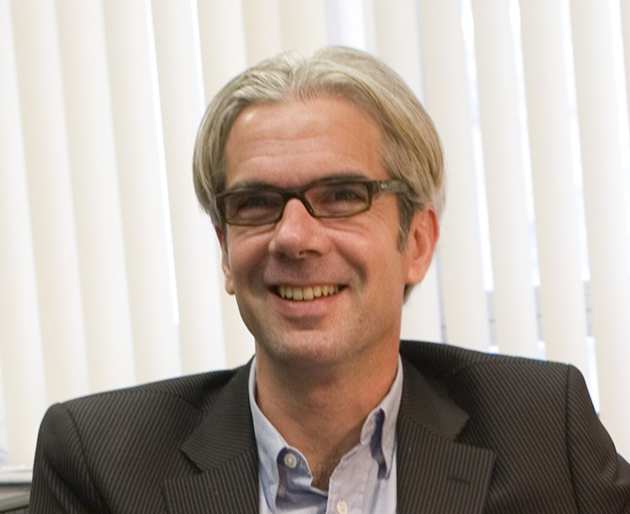 GARRETT VAN RYZIN is the Paul M. Montrone Professor of Decision, Risk, and Operations at the Columbia University Graduate School of Business, Chair of the Decision, Risk, and Operations Division of the School, and Head of Dynamic Pricing at Uber. His research interests include analytical pricing, stochastic modeling, and operations management. He is coauthor of the book The Theory and Practice of Revenue Management, which won the 2005 Lanchester prize for best published work in operations research. His research has been supported by grants from the National Science Foundation and major corporations, and he has served as a consultant to many leading companies. He was Editor in Chief of M&SOM, currently serves as Area Editor for Operations Research, and is an INFORMS and MSOM Fellow. He received the B.S.E.E. degree from Columbia University, and the degrees of S.M. in Electrical Engineering and Computer Science and Ph.D. in Operations Research from MIT.
GARRETT VAN RYZIN is the Paul M. Montrone Professor of Decision, Risk, and Operations at the Columbia University Graduate School of Business, Chair of the Decision, Risk, and Operations Division of the School, and Head of Dynamic Pricing at Uber. His research interests include analytical pricing, stochastic modeling, and operations management. He is coauthor of the book The Theory and Practice of Revenue Management, which won the 2005 Lanchester prize for best published work in operations research. His research has been supported by grants from the National Science Foundation and major corporations, and he has served as a consultant to many leading companies. He was Editor in Chief of M&SOM, currently serves as Area Editor for Operations Research, and is an INFORMS and MSOM Fellow. He received the B.S.E.E. degree from Columbia University, and the degrees of S.M. in Electrical Engineering and Computer Science and Ph.D. in Operations Research from MIT.
17 November 2015 - Humans Need Not Apply: A guide to wealth and work in an age of Artificial Intelligence
Data Science Insights: Humans need not apply
Time: 17:30 - 19:00
Venue: Imperial College London, Huxley Building, Lecture Theatre 308. Campus map availible here.
After billions of dollars and fifty years of effort, researchers are finally cracking the code on artificial intelligence. As society stands on the cusp of unprecedented change, Jerry Kaplan unpacks the latest advances in robotics, machine learning, and sensory perception powering systems that rival or exceed human capabilities.
Kaplan, author of the newly released book Humans Need Not Apply, explains why and how technological innovation will accelerate in the years ahead, what it means to have computers intimately involved in most aspects of our lives, and what the relentless advance of automation will mean for the way we work and live.
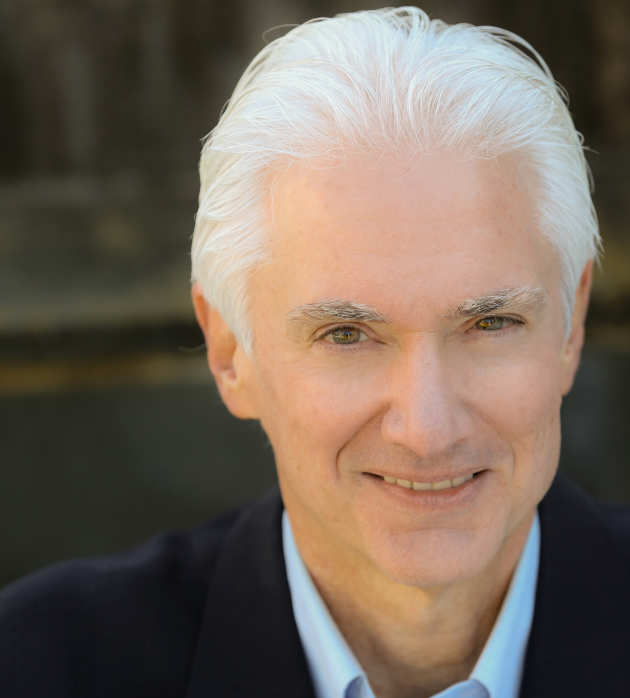 JERRY KAPLAN is widely known as a serial entrepreneur, technical innovator, bestselling author, and futurist. He co-founded four Silicon Valley start-ups, two of which became publicly traded companies. His 1995 book Startup: A Silicon Valley Adventure was named one of the top ten business books by BusinessWeek. Kaplan has been profiled in The New York Times, The Wall Street Journal, Forbes, BusinessWeek, and Red Herring, and is a frequent public speaker. He is currently a Fellow at The Stanford Center for Legal Informatics. He also teaches Philosophy, Ethics, and Impact of Artificial Intelligence in the Computer Science Department, Stanford University. For more information seewww.jerrykaplan.com
JERRY KAPLAN is widely known as a serial entrepreneur, technical innovator, bestselling author, and futurist. He co-founded four Silicon Valley start-ups, two of which became publicly traded companies. His 1995 book Startup: A Silicon Valley Adventure was named one of the top ten business books by BusinessWeek. Kaplan has been profiled in The New York Times, The Wall Street Journal, Forbes, BusinessWeek, and Red Herring, and is a frequent public speaker. He is currently a Fellow at The Stanford Center for Legal Informatics. He also teaches Philosophy, Ethics, and Impact of Artificial Intelligence in the Computer Science Department, Stanford University. For more information seewww.jerrykaplan.com
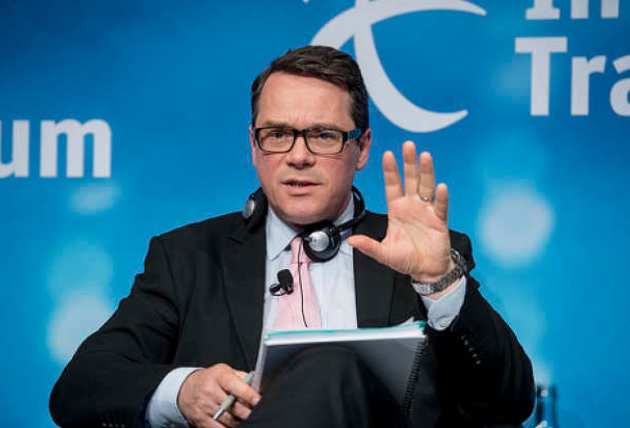 Axel Threlfall is currently Editor-at-Large at Reuters and was previously lead London anchor for Reuters Insider, a global broadcast venture recently set up by Thomson Reuters, and features regularly in video clips on the Reuters website. He also presents special reports for Reuters from events such as the World Economic Forum in Davos. He was one of CNBC's main presenters, spending four years at the network. He hosted "European Market Watch" for three years, interviewing dozens of chairmen, CEOs and CFOs from the world's most successful companies. Axel was a news reporter earlier in his career with The Wall Street Journal, Bloomberg and ITN, in both London and New York. Upon leaving CNBC Europe, Axel became a partner at ECD Insight, focusing on working with senior business people on high-profile presentations to investors, analysts and employees as well as on print media and TV interviews. He has a B.A. from Durham University and a Masters degree in journalism from City University, London.
Axel Threlfall is currently Editor-at-Large at Reuters and was previously lead London anchor for Reuters Insider, a global broadcast venture recently set up by Thomson Reuters, and features regularly in video clips on the Reuters website. He also presents special reports for Reuters from events such as the World Economic Forum in Davos. He was one of CNBC's main presenters, spending four years at the network. He hosted "European Market Watch" for three years, interviewing dozens of chairmen, CEOs and CFOs from the world's most successful companies. Axel was a news reporter earlier in his career with The Wall Street Journal, Bloomberg and ITN, in both London and New York. Upon leaving CNBC Europe, Axel became a partner at ECD Insight, focusing on working with senior business people on high-profile presentations to investors, analysts and employees as well as on print media and TV interviews. He has a B.A. from Durham University and a Masters degree in journalism from City University, London.
17 June 2015 - Building Brains: Learning from data
Data Science Insights - Building Brains: Learning from data (Highlights)
Time: 16:00 - 17:30
Venue: The Royal Institution of Great Britain, 21 Albemarle Street, London W1S 4BS
Learning from data is something that has evolved naturally in the human (and animal) brain. Learning is a fundamentally important part of how we make decisions, how we build things and how we create value. Building machines that can learn was one of the grand challenges in computing in the 20th century, spawning a wealth of research into how to mimic processes of the human brain with artificial neural networks. Most recently, more advanced artificial neural networks have lead to the emergence of the field of machine learning that is today being applied widely in data science and big data analytics. Machine learning is transforming whole industries, and is driving the development of advances such as self-driving cars, a computer that can beat humans at Jeopardy! and real-time machine translation.
In this fourth Data Science Insights event we welcome Steve Furber CBE, professor of computer engineering at the University of Manchester, best known for his work as one of the designers of the BBC Micro home computer. Most recently he is working on SpiNNaker – a new kind of computer architecture that directly mimics the human brain.
Professor Furber will be joined by Axel Threlfall, Editor-at-Large at Reuters who will interview him and mediate questions from the audience.
This Data Science Insights talk will form part of the annual London Technology Week. and to mark this will be held at the Royal Institution. The Royal Institution of Great Britain has a long history at the heart of science and learning in London and provides a fitting venue for the final talk of this academic year.
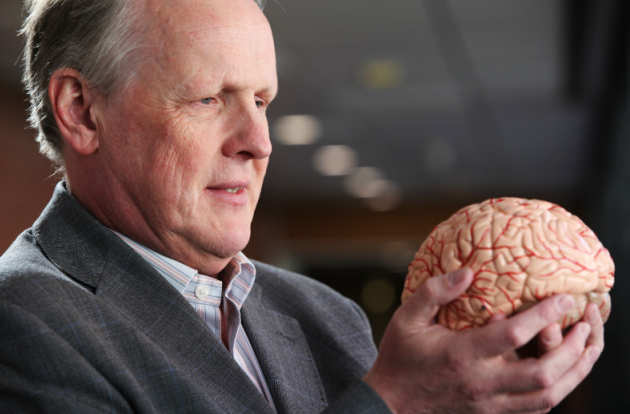
Steve Furber CBE FRS FREng is ICL Professor of Computer Engineering in the School of Computer Science at The University of Manchester, UK. After completing a BA in mathematics and a PhD in aerodynamics at the University of Cambridge, UK, he spent the 1980s at Acorn Computers, where he was a principal designer of the BBC Microcomputer and the ARM 32-bit RISC microprocessor. Over 50 billion variants of the ARM processor have since been manufactured, powering much of the world's mobile and embedded computing. He moved to the ICL Chair at Manchester in 1990 where he leads research into asynchronous and low-power systems and, more recently, neural systems engineering, where the SpiNNaker project is delivering a computer incorporating a million ARM processors optimised for brain modelling applications. He also chaired the committee that produced The Royal Society report that effectively kick-started the computing curriculum changes in schools in England.
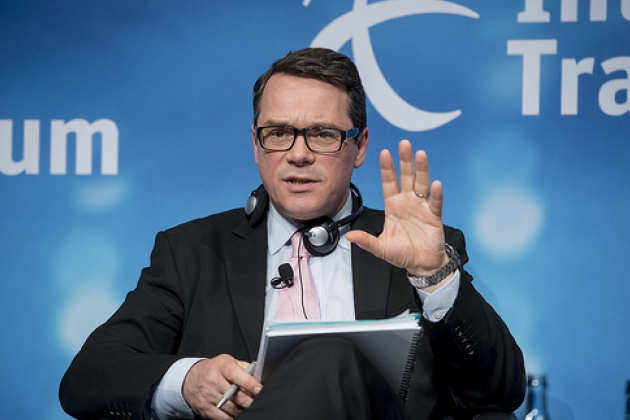 Axel Threlfall is currently Editor-at-Large at Reuters and was previously lead London anchor for Reuters Insider, a global broadcast venture recently set up by Thomson Reuters, and features regularly in video clips on the Reuters website. He also presents special reports for Reuters from events such as the World Economic Forum in Davos. He was one of CNBC's main presenters, spending four years at the network. He hosted "European Market Watch" for three years, interviewing dozens of chairmen, CEOs and CFOs from the world's most successful companies. Axel was a news reporter earlier in his career with The Wall Street Journal, Bloomberg and ITN, in both London and New York. Upon leaving CNBC Europe, Axel became a partner at ECD Insight, focusing on working with senior business people on high-profile presentations to investors, analysts and employees as well as on print media and TV interviews. He has a B.A. from Durham University and a Masters degree in journalism from City University, London.
Axel Threlfall is currently Editor-at-Large at Reuters and was previously lead London anchor for Reuters Insider, a global broadcast venture recently set up by Thomson Reuters, and features regularly in video clips on the Reuters website. He also presents special reports for Reuters from events such as the World Economic Forum in Davos. He was one of CNBC's main presenters, spending four years at the network. He hosted "European Market Watch" for three years, interviewing dozens of chairmen, CEOs and CFOs from the world's most successful companies. Axel was a news reporter earlier in his career with The Wall Street Journal, Bloomberg and ITN, in both London and New York. Upon leaving CNBC Europe, Axel became a partner at ECD Insight, focusing on working with senior business people on high-profile presentations to investors, analysts and employees as well as on print media and TV interviews. He has a B.A. from Durham University and a Masters degree in journalism from City University, London.
12 May 2015 - Are you dining on Data? How data is playing a role in what you eat and what you buy
Data Science Insights - Are you dining on data? (Highlights)
Time: 17.00 - 18.30
Venue: Chemical Engineering Lecture Theatre 1, ACE Extension, Imperial College London, South Kensington Campus, 180 Queen's Gate, London SW7 2AZ (building no. 14 on the map of South Kensington Campus).
The supply chains that feed the world, and keep us supplied with all our goods are global. But these supply chains are fragile; vulnerable to climate change, extreme weather, natural disaster, wars and political unrest. As the global population heads towards 8 billion, one of the biggest challenges we face is feeding ourselves. Thomson Reuters recently predicted that advances in genetically modified foods, and advances in agricultural technology, will make food shortages and price fluctuations a thing of the past by 2025.
The global supply chain is mapped with more data than ever before. In the third of the Data Science Insights series, hosted by Imperial College's Data Science Institute in partnership with Thomson Reuters, Derek Scuffell, Head of R&D Information Systems at Syngenta and Judith Batchelar, Director of Brand at UK supermarket chain Sainsbury's, will each share insights in how their supply chains are driven by data and how the world will be able to feed itself in the future because of data. Professor Nilay Shah from Imperial College will chair.
About our speakers
Judith Batchelar is director of the Sainsbury's brand, responsible for all aspects of Sainsbury's product offer - from policy formation on areas such as animal welfare, ethical and sustainable sourcing, through to product technology, product development, product safety, and packaging. In essence, her role is to drive the quality and innovation agendas, and protect and enhance the reputation of Sainsbury’s brand. In addition to her work at Sainsbury’s, Judith sits on the Board of Trustees for The Marine Stewardship Council, Farm Africa and GroceryAid. She is a member of the Institute of Food Science and Technology (IFST), a fellow of the Royal Society of Arts, and an ambassador for the Woodland Trust.
Derek Scuffell heads up R&D for Information Systems, Strategy & Landscapes, at Syngenta, a global Swiss agribusiness that markets seeds and agrochemicals that is also involved in biotechnology and genomic research. Derek advises on the deployment and use of information systems for research in crop protection and agricultural phsyiology, focusing in particular on developing linked enterprise data strategies for life sciences R&D.
11 March 2015 - The Improbability Principle: Why Coincidences, Miracles, and Rare Events Happen Every Day
Data Science Insights - The Improbability Principle (Highlights)
Time: 16.00 - 17.30
Venue: Clore Lecture Theatre, Huxley Building, Imperial College London, South Kensington Campus, 180 Queen's Gate, London SW7 2AZ (building no. 13 on the map of South Kensington Campus).
Coincidences happen, incredibly unlikely things occur, and the apparently miraculous comes about. The improbability principle says that such extraordinarily improbable events are commonplace. It shows that this is not a contradiction, but that we should expect identical lottery numbers to come up more than once, lightning to strike twice, and financial crashes to occur.
In our second Data Science Insights event Professor David Hand, Emeritus Professor at Imperial College London, will speak on the subject of his book, The Improbability Principle, about why incredibly unlikely things keep happening. Axel Threlfall, Lead Anchor for Reuters Television, will chair.
Professor David J. Hand is Senior Research Investigator and Emeritus Professor of Mathematics at Imperial College, London. His applications interests include psychology, physics, and the retail credit industry - he and his research group won the 2012 Credit Collections and Risk Award for Contributions to the Credit Industry. He was awarded the Guy Medal in Silver by the Royal Statistical Society in 2002 and served as its President in 2008-9, then again from in 2010 after Bernard Silverman stood down, and was elected a Fellow of the British Academy in 2003. He was made OBE for services to research and innovation in 2013. His latest book, The Improbability Principle, appeared in February 2014.
Axel Threlfall is Editor at Large at Reuters, based in London. He hosts high-profile engagements and thought leadership events for and on behalf of Reuters and Thomson Reuters, such as the Newsmaker series and the World Economic Forum news show in Davos. He was previously Lead European Anchor for Reuters Digital Video. Prior to joining Reuters, Axel spent four years as an anchor for CNBC in London and has also advised businesses and NGOs on their dealings with the international media.
11 December 2014 - Are your decisions your own? How data is used to lead your choices
Data Science Insights - Are your decisions your own? (Highlights)
We’re all used to the idea that the choices we make can be influenced, otherwise brands would have no interest in advertising. And there is a growing trend in organizations benefiting from mining information about from how we engage with their products and services. A/B testing can be used to optimise design, and the actions we take are steered by the information or products presented to us.
In this inaugural Data Science Insights event, Felicity Algate from the Behavioural Insights Team (the world’s first government institution dedicated to the application of behavioural sciences; BIT is now a social purpose company joint owned by the employees, Cabinet Office and Nesta) and Edwina Dunn (CEO of Starcount, chair of the Your Life campaign, and co-founder of dunnhumby, the company behind Tesco’s Clubcard, My Kroger Plus and other loyalty programmes around the world) will each share insights into how the choices you make can be influenced.
Imperial alumnus Dr Nick de Leon, now head of Service Design at the Royal College of Art, will then chair a discussion.
Are your decisions your own? Who it to say what behaviour is 'good'? How can data be used to bring benefits to users, rather than straying into manipulation?
About our speakers
Edwina Dunn is the one who makes it happen. Her desire to drive change and create impact has been the defining characteristic of her career. Starting out as a graduate at CACI, she became the company’s youngest-ever vice-president, in charge of marketing. Edwina was responsible for dunnhumby commercially, guiding the company into new sectors and new markets. As well as growing dunnhumby’s own team to span 30 offices across Europe, Asia and the Americas, Edwina worked closely with international clients to embed true customer-centricity in their organisations. Edwina is a Trustee of the Science Museum Foundation and received an Honorary Doctorate in Business Administration from the University of Derby in 2012, and is today CEO of Starcount, a social media analytics startup, and chair of Your Life, a campaign to boost maths and science skills in young adults in the UK.
Felicity Algate heads the Behavioural Insights Team’s work on consumer policy and financial services. Felicity's work programme has included the development with the Department for Business of the 'Growth Vouchers' randomised controlled trial, and the UK government’s 'midata' programme. Felicity joined the team from the Office of Fair Trading where she was a Senior Economist, working on competition and consumer issues. Prior to that, she was a currency strategist and economist at a large investment bank.
Contact us
Email:
datascienceinstitute@imperial.ac.uk
Data Science Institute
William Penney Laboratory
Imperial College London
South Kensington Campus
London SW7 2AZ
United Kingdom
Sign up to our mailing list.




